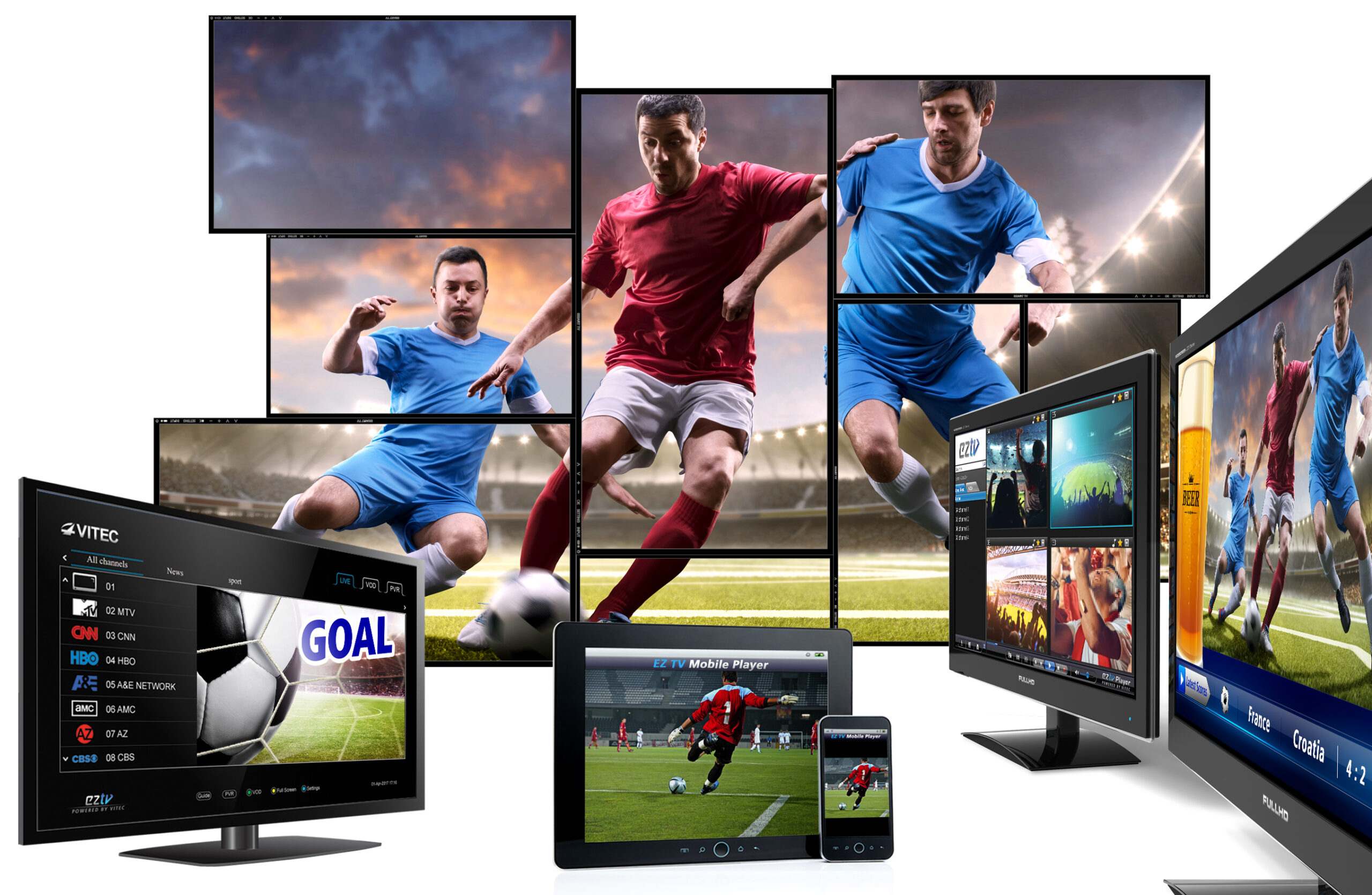Struggling to choose between IPTV and Cable TV? Discover the key differences, pros, and cons of each, and find out which option suits your viewing needs best in this comprehensive comparison.

In today’s digital world, we have more ways to watch television than ever before. With the rise of streaming services and internet-based platforms, the traditional cable TV model faces stiff competition. One of the alternatives gaining popularity is IPTV (Internet Protocol Television), which allows users to stream TV content over the internet. But how does it compare to cable TV? Which one offers better value, flexibility, and viewing experience?
In this article, we’ll dive deep into the differences between IPTV and cable TV, examining the pros and cons of each option. By the end, you’ll have a clearer understanding of which platform is the best fit for your lifestyle and entertainment needs.
What is IPTV?
IPTV, or Internet Protocol Television, is a service that delivers television content over the internet rather than through traditional terrestrial, satellite, or cable formats. IPTV allows users to watch live TV, on-demand programs, and recorded shows from any device that has an internet connection.
Key Features of IPTV:
- Live TV Streaming: Watch your favorite shows in real time, similar to cable or satellite services.
- On-Demand Content: Access a wide library of shows, movies, and series at your convenience.
- Time-Shifted Media: Pause, rewind, or fast-forward live broadcasts.
- Multi-Device Accessibility: Watch content on your TV, laptop, smartphone, or tablet with ease.
What is Cable TV?
Cable TV delivers content via physical cables that connect to your television set. It has been the dominant form of home entertainment for decades, providing access to a variety of channels, including news, sports, movies, and live events.
Key Features of Cable TV:
- Live TV Broadcasting: Access to hundreds of live channels, including premium options like HBO and sports networks.
- DVR Capabilities: Record live programs for later viewing, usually with set-top boxes.
- Local Programming: Reliable access to local channels and regional content.
- Consistent Picture Quality: Cable TV typically offers uninterrupted service with a stable signal.
IPTV vs. Cable TV: A Detailed Comparison

1. Content Delivery and Flexibility
The most significant difference between IPTV and cable TV lies in how the content is delivered.
- IPTV uses the internet to stream live and on-demand content. This gives you the freedom to watch TV on multiple devices, such as smartphones, tablets, and smart TVs. All you need is an internet connection, which means you can take IPTV wherever you go.
- Cable TV, on the other hand, requires a physical cable connection. This limits you to watching content only on the TV connected to the cable box.
Which Is Better? If you value portability and flexibility, IPTV is the clear winner. With services like Premium IPTV-diensten, you can enjoy your favorite shows anywhere, anytime, without being tethered to your living room.
2. Channel Selection and On-Demand Content
- Cable TV typically offers a wide selection of live channels, including specialized networks for news, sports, and premium entertainment. However, on-demand content is often limited or requires additional subscriptions to services like HBO or Showtime.
- IPTV offers a comparable range of live channels but with a much richer on-demand library. IPTV services also provide access to a global array of content, meaning you can watch international channels or niche programming not available on traditional cable.
Which Is Better? IPTV takes the edge here, thanks to its extensive on-demand options and global channel offerings, perfect for those who want more control over their viewing choices.
3. Cost and Pricing Models
The price of television services is a significant factor for most households.
- Cable TV often comes with bundled packages that include landline and internet services. While these bundles can seem convenient, they often lead to higher bills, with long-term contracts and hidden fees. The price of cable can increase after promotional periods end, leading to bills well over $100 a month.
- IPTV is generally more affordable and abonnement-based, allowing you to pay only for the channels and content you want. IPTV services often come with flexible pricing, and there are no long-term contracts or hidden fees.
Which Is Better? For budget-conscious viewers, IPTV is a much more affordable option, especially when considering the flexibility of monthly subscriptions without the commitment.
4. Picture and Streaming Quality
When it comes to picture quality, both IPTV and cable TV have their strengths.
- Cable TV offers consistent quality, as it doesn’t rely on internet speeds. However, the quality may be capped, especially if your cable package doesn’t support HD or 4K content.
- IPTV relies on your internet connection. If you have a fast and reliable connection, you can stream in HD and even 4K resolution without buffering. But with a slower or inconsistent internet connection, you may experience lags or drops in quality.
Which Is Better? If you have a stable high-speed internet connection, IPTV is the better option due to its ability to stream ultra-high-definition content. However, cable TV may be more reliable in areas with slower internet speeds.
5. Customer Experience and Usability
- Cable TV requires the use of set-top boxes or DVRs, which can sometimes be cumbersome to navigate. Plus, installation often requires a technician visit, and there may be rental fees for the equipment.
- IPTV services, such as Premium IPTV-diensten, offer a more modern and user-friendly experience. Many IPTV services are accessible through apps, making it easy to navigate content on a variety of devices. No installation is needed, and you can start streaming within minutes of subscribing.
Which Is Better? IPTV offers a more seamless, modern viewing experience with fewer hassles when it comes to setup and navigation.
Personal Experience: Choosing Between IPTV and Cable TV

Imagine this scenario: John, a busy professional, loves watching live sports and international films. He’s tired of the high bills from his cable company, which limits his viewing to one TV and doesn’t offer much on-demand content without additional fees. After switching to an IPTV service, John now enjoys watching live games on his phone during his commute, bingeing international films on his smart TV, and paying a fraction of what he did with cable. For John, IPTV’s flexibility and affordability were game-changers.
Pros and Cons of IPTV and Cable TV
Pros of IPTV:
- Watch content on multiple devices.
- Extensive on-demand library.
- Affordable subscription models with no contracts.
- High-definition streaming (up to 4K).
- Global and niche content availability.
Cons of IPTV:
- Requires a fast, reliable internet connection.
- May experience buffering with poor internet.
Pros of Cable TV:
- Reliable and consistent signal quality.
- Large selection of live TV channels.
- No dependence on internet speed.
Cons of Cable TV:
- Expensive packages with hidden fees.
- Requires installation and equipment rental.
- Limited on-demand options.
- Tethered to the TV with a cable box.
IPTV vs. Cable TV: Which Should You Choose?
When deciding between IPTV and cable TV, the choice ultimately depends on your viewing habits and needs:
- If you’re someone who enjoys watching content on-the-go, values on-demand streaming, and prefers flexible, lower-cost subscription models, IPTV is the best option.
- If you prioritize a reliable connection and mostly watch live TV, and don’t mind the higher costs and limitations, cable TV may still be worth considering.
In 2024 and beyond, IPTV is quickly becoming the preferred choice for tech-savvy users who want more control over their content and how they watch it. Services like Premium IPTV-diensten offer a modern, flexible solution to meet these needs.
The Future is IPTV
In the evolving world of television, IPTV is quickly gaining ground as a modern, flexible, and cost-effective alternative to traditional cable TV. With its superior content options, on-demand flexibility, and multi-device support, IPTV is the clear winner for those who value convenience and affordability. If you’re ready to explore the benefits of IPTV, Premium IPTV-diensten provides everything you need to upgrade your viewing experience.


